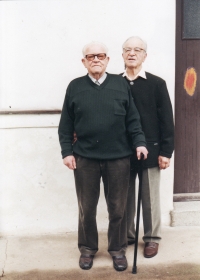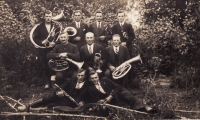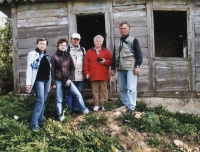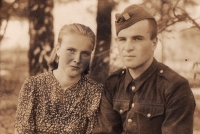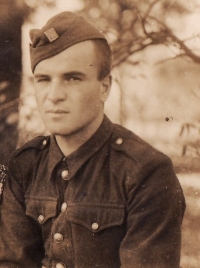We had German neighbours on one side and Poles on the other, and had no problems with either.

Download image
Miloslav Vohralík is a Volhynian Czech. He was born on 23 September 1921 in the village of Kurdybáň Žornovský in the Dubno district in Poland (in Ukraine today). The family owned a farm including 12 hectares of land, a hop field and a hectare of forest. Father Vladimír Vohralík operated a joinery workshop and served as the community’s mayor, but resigned after the Soviet Union’s invasion in September 1939. Miroslav Vohralík witnessed both Soviet and Nazi occupation in Kurdybáň Žornovský. He married Anna Křesinová in 1941. Three years later, he voluntarily joined the Czechoslovak army corps fighting alongside the Soviet army. He left his wife and three little children back at home. He was injured during the Battle of the Dukla Pass and when he recovered, he became a member of a reservist battalion, with which he stayed until the end of the war. He then served in the Žatec area until demobilisation. As a participant in the struggle for national liberation, he took advantage of his priority right and took over a farmstead vacated by Germans in the community of Řepová near Mohelnice. His wife and children re-emigrated there to join him in 1947. His family refused to join the united farming cooperative (JZD) during the collectivisation of agriculture directed by the communist regime. Eventually, they opted to leave Řepová and left their farmstead and fields as well as all the livestock to the cooperative. They purchased a farm in nearby Libivá, but the collectivisation caught up with them there and they eventually had to join the JZD. After that, Miloslav Vohralík worked as a storage operator in the cooperative until retirement. He was still living with his wife at the farm in Libivá at the time of recording in 2009. Miloslav Vohralík died in 2011.
